
Life at War, part 3: An uncertain future facing new realities in a foreign country
The war in Ukraine is a tragedy for millions of people who, fearing for their lives and families, are forced to leave their homeland for other countries. While some plan to stay there with families and friends, others count on the help of kind people and charitable organisations. Everyone organises differently; however, they all hope to meet again in an independent and free Ukraine. According to UN, more than 5 million refugees have now left Ukraine since the Russian invasion on 24 February.
In order to share the brutal stories of ordinary Ukrainians, the Young European Ambassadors in Ukraine created a trilogy called Life at War. In the first part, young people shared their experiences of living in cities under fire. In the second part, they described their experience of evacuation from the front line to safer parts of Ukraine. The last part of the trilogy focuses on the stories of people who found shelter in other countries.
Kateryna, Sasha, Anastasiia, Oleksandra and Eliza are Young European Ambassadors in Ukraine. They are Ukrainians who suffered from the war and managed to escape from their embattled cities. From 20-25 April, the young women talked to Sofiya Korol, their friend and Young European Ambassador in Ukraine, and shared their experience of travelling.
Kateryna: I will never forget that fear and surreal experience of worrying for my life, my loved ones, and my Ukraine
Kateryna recently received her master’s degree in German language and literature from the Oles Honchar National University of Dnipro. In her peaceful life, she works as a German teacher, does volunteer work, takes part in Erasmus+ youth exchanges, and actively contributes to non-governmental organisations in her city, such as FRI Dnipro, the League of Tolerance, EU4Youth Alumni Network, etc.
The war caught up with Kateryna in her native Dnipro, when explosions woke her up on 24 February at 5am.
“I will never forget that feeling, that fear and surreal worry for my life, my loved ones, and my Ukraine. I started calling all my relatives and friends right away. I didn’t know what to do. My mind started to produce the most frightening pictures from war movies, in which the entire city was under fire from missiles. I quickly packed up and went to my parents on the edge of the city. I didn’t sleep all night, waiting for the worst. I was thinking about Kyiv, which was hit by the most bombs, and my relatives who were there,” Kateryna remembers.
The next day, she moved to her mother’s village in the Dnipropetrovska region. Having joined the volunteer platform of German translators, she helped her country on the information front. The young woman remained in the village until 8 March, the day when a missile exploded 10 km away, shocking everyone. A few days later; Kateryna convinced her mother to go to Dnipro to stay there, because she believed that it would be a safer place, protected by air defence.
“After two days, however, Dnipro was also bombed, especially at night, which made the situation even more terrible. Sitting in the corridor in the middle of the sirens and explosions became a new reality. You quickly become accustomed to the sirens, but the explosions were terrible. I could not sleep normally at all,” she recalls.
In Dnipro, Kateryna managed to complete her education and receive her diploma. She continued to volunteer, too, by making safety nets, translating, and finding shelter for animals from hot spots, therefore providing her friends with pets.
But as the explosions in Dnipro became more frequent, her family began to press her to go abroad, where she could at least be physically safe. After a month of hoping for the better in Dnipro, Kateryna finally decided to evacuate from Ukraine with her mother and little dog.
“Lasting three days, our trip was quite challenging. First, there was a train from Dnipro to Chełm. It took us more than 24 hours to reach the border, where we spent about 6 hours. Then the Chełm-Warsaw train was waiting for us. In Warsaw, we spent a night in a refugee camp. Poles help Ukrainians a lot. We noticed that the volunteer service there was already well established. We took a night train to Berlin, but they dropped us off in Frankfurt (Oder), saying that if we do not have someone in Berlin, it is better to switch to Hanover, because Berlin was already overcrowded with refugees, so they sent them to other regions,” Kateryna said.
They then took another train from Hanover to Cologne, where they had to stay overnight in a refugee camp. On the third day of the trip, they were finally on a way to a host family in Düsseldorf, which an acquaintance helped them to find.
“It was here that I was able to sleep normally for the first time, and started to recollect myself. At the same time, I miss Ukraine as never before and worry about my loved ones who are still there,” says Kateryna.
Reflecting on her stay in refugee camps in Warsaw and Cologne, Kateryna notes that the latter one was somewhat less hospitable. To enter, you had to take a coronavirus test and then receive an entry bracelet. The camp was small, and so was the sleeping room, which accommodated 20 people. Despite the presence of heaters, it was quite cold, and only chemical toilets were available. However, the food was fine, and the residents were provided with hygiene products and pet food.
Now, the Young European Ambassador is preparing documents for her stay in Germany. Because she speaks German well, she joined a local volunteer service that provides translation assistance to Ukrainian refugees. In the first weekend after her arrival, Kateryna attended an anti-war rally, which she plans to continue doing every weekend.
“My grandfather and grandmother are still in Ukraine, not far from the Donetsk region. They hear explosions every day, and they intensify. As the war continues, the international community gets used to it as something normal. I do not want to allow that. I want to help Ukraine from abroad as much as possible, including by taking part in various rallies and demonstrations, because it is important to make our voice heard, so that people do not get accustomed to the war and do not forget about it,” said Kateryna.
Moreover, she wants to help the young Germans to raise awareness about the situation in Ukraine. In the near future, she hopes to implement activities to contribute to this, with the support of the Young European Ambassadors initiative.
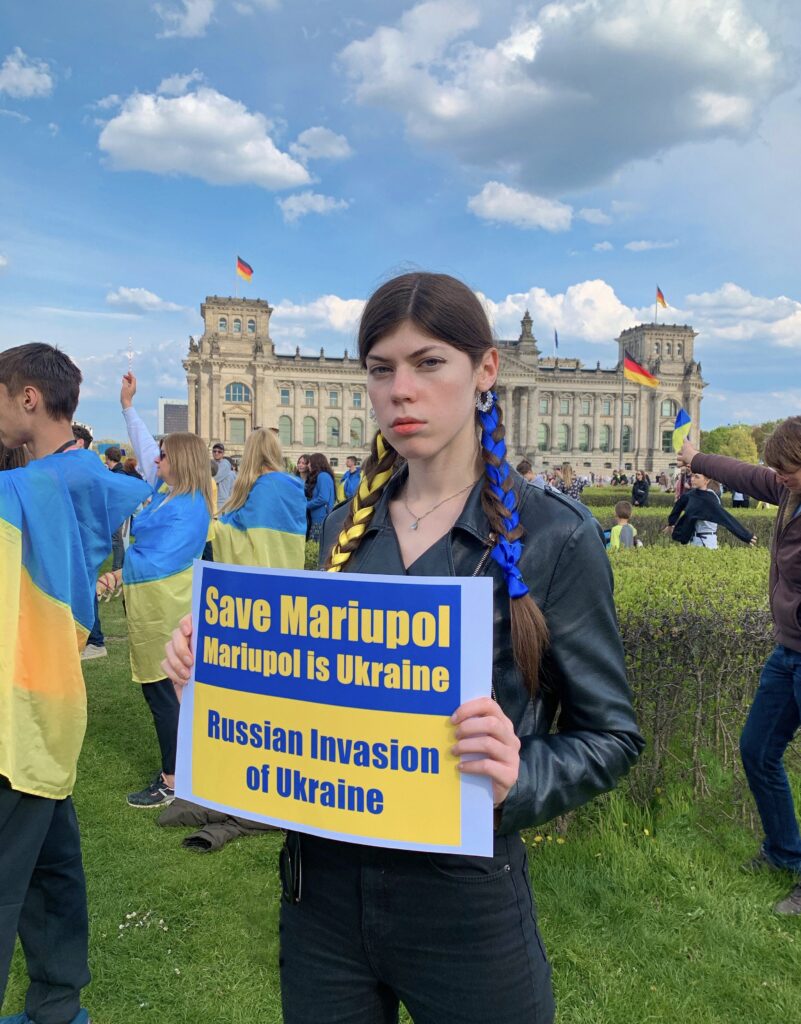
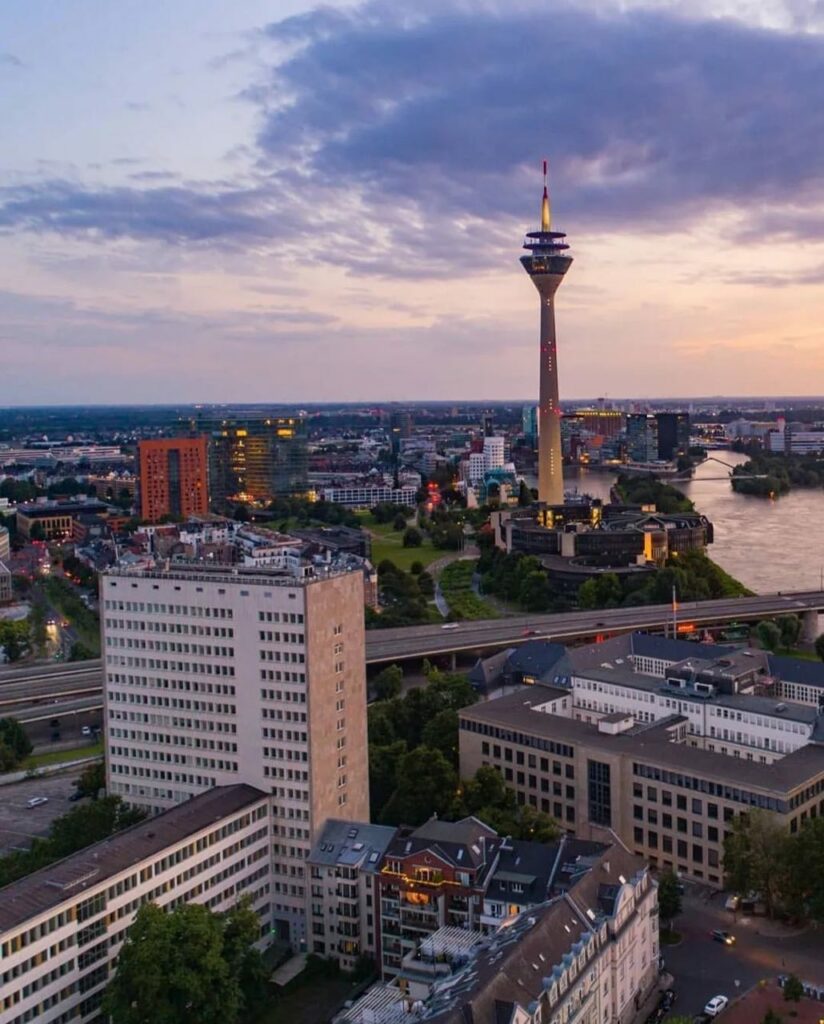
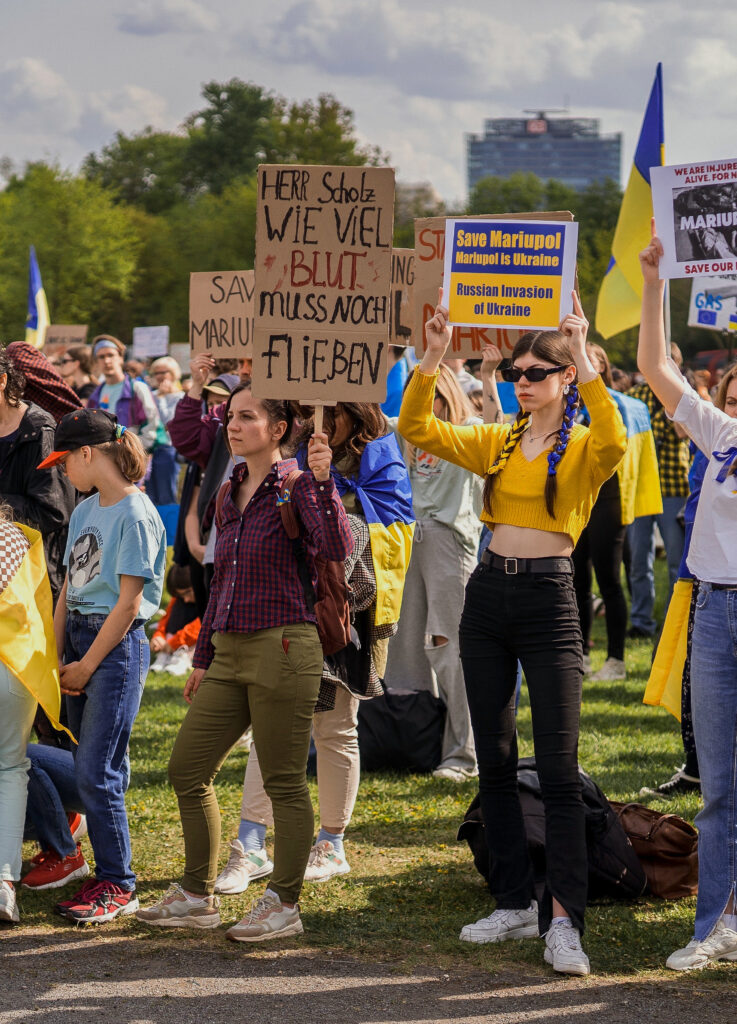
Sasha: The people at the station had no idea where they were going. They wanted any train
Sasha is a student at the Yaroslav the Wise National Law University in Kharkiv, a civic activist, volunteer, member of the Ukrainian Students for Freedom, and graduate of the SUSI programme and the Kharkiv School of Human Rights.
She begins her story by saying that on 23 February she met a friend, and discussed the possibility of a large-scale invasion. The war was in the air.
“On 24 February, I woke up without an alarm at 6 am, although I never wake up myself until 9 am in normal life. On my phone, I found 14 missed calls from my mother, boyfriend and other friends. That’s when I realised something was wrong. Following the instructions, I began to pack my belongings at rapid-fire pace,” says the young woman.
Sasha said that on the first day she was looking for bomb shelters near her house, and then decided to stay in the basement, because she did not want to risk spending the night in the subway because of the coronavirus threat. At first, there were no explosions in the city; the situation worsened later. In the evening, Sasha’s boyfriend returned from his tour (he is a musician), and they spent more than a week together at home. The couple insulated the windows with soundproof panels (because her boyfriend is a musician, they had them available), and prayed that the city would survive. The young people lived on the first floor of a two-floor building downtown, near a number of large buildings, four universities and the Russian consulate. Sasha hoped that the invaders would not attack the neighbourhood around their own consulate.
“Every time when we heard a bomb, we were on the floor between the two main walls in the kitchen. Sirens would often wake us up in the middle of the night or early in the morning. I was very afraid to go out for no reason, and did not let my boyfriend go. Fortunately, we had products that had a long shelf life, such as rice, pasta, and tomato sauce. However, they were not much. Despite all the talks and warnings, we were not prepared for something like this to happen,” said the Younbg European Ambassador.
At the time, Sasha’s parents lived in a high-rise building near the military base. From the first day, they decided to stay in the basement of their garage without electricity or heating. A week later, they could no longer stand this, and decided to move in with their daughter.
“We cooked for the evening and spent the night together. However, new and even more eerie noises than before got us out of our beds in the morning. I think these were missiles. That night, my boyfriend had a nervous breakdown and decided that we had to leave Kharkiv no matter what,” Sasha recalls. They therefore bought tickets for the trip to Ternopil. The taxi to the station was 20 times more expensive than in peacetime. According to Sasha, people at the station had no idea where they were going; they just waited for any train. There were no volunteers or station staff to help. However, Sasha managed to get to the platforms and find their train.
“Four big, brave guys from the territorial defence were holding back the crowd, letting only mothers and children in, separating the families, and leaving the fathers, brothers, and husbands outside. Luckily, we were able to get onto the train together,” she said.
Sasha recalls travelling for 18 instead of 13 hours. The train was full of crying children taking many of the seats. As a result, elderly women could hardly find a place and often ended up on the floor.
“When we were relatively safe, my parents also decided to leave their hometown. They packed everything they needed and went to the hospital early in the morning to pick up my grandfather, who had been in the hospital basement the whole time. I tried to help them plan the journey, taking into account all the difficulties, as you cannot drive a car during the curfew. We managed to reach Ternopil only 3 or 4 days later,” says Sasha.
Everything was quiet in Ternopil, except for occasional sirens. Sasha’s parents and boyfriend are still there, but she had to go further.
“I had to leave my family behind because at the beginning of 2022 I was invited as a youth delegate of Ukraine to the Congress of Local and Regional Authorities of Europe, and I had to be present at its session in Strasbourg,” she explains. It took her five days to get from Ternopil to her destination. Sasha left Ternopil on the morning of 16 March. She took a bus to Lviv, where she stayed for five hours waiting for a train to Przemyśl. Instead of the usual two and a half hours, the train took ten hours. In Przemyśl, volunteers greeted the Ukrainians with warm pies and tea. After that, Sasha took a train to Cracow. She decided to stay there, because she found a free hotel room in the city through www.hospitalitysupport.org. The next day, she moved to Berlin, where she had friends who were ready to host her for some time. Volunteers handed out tickets “to Berlin” on a “special train for Ukrainians”. Instead, the train took people only to the border. Everyone had to cross the border by bus. Rather than Berlin, the bus took them to Leipzig. From there, Sasha took a train to Frankfurt, and the next day she went to Strasbourg.
“I and the other 37 youth delegates from all over Europe participated in the thematic committees of the Congress of Local and Regional Authorities of Europe, spoke on the agenda and addressed our questions to the high-ranking officials. Of course, Ukraine was on the agenda; this discussion lasted for three hours. Over 50 congress participants had interventions. The meeting began with the Ukrainian anthem and all the Ukrainian delegates (not the young people but the very delegates to the Congress) were present with Ukrainian flags. I made my own statement to make sure that they are ready to oppose the war, if Putin doesn’t stop,” the young woman recalled.
Sasha’s parents urged her not to return to Ukraine because of the continued insecurity in the country. And so she planned to stay in France after the Congress, hoping to take part in the European Solidarity Corps volunteer programme. However, Sasha received no positive response to her application for any of the projects. However, a colleague, a youth delegate from France, encouraged her to stay at her home.
“I’m still here in France, although I didn’t plan to stay more than a week. At the same time, I was extremely lucky because a professor at my university suggested that I take part in an internship at the European Parliament. I will be going to Strasbourg again next week to take part in a youth forum for the former and current youth delegates to the Congress. I have also agreed on a meeting with the permanent representative of Ukraine to the Council of Europe when I am there. And after that, I expect, I will go to Brussels for the first internship and will continue to defend the Ukrainian position at the international level,” Sasha says.
The young woman stresses that, despite the fact that the world is already beginning to get used to the war, it continues and causes daily deaths of innocent Ukrainian citizens.
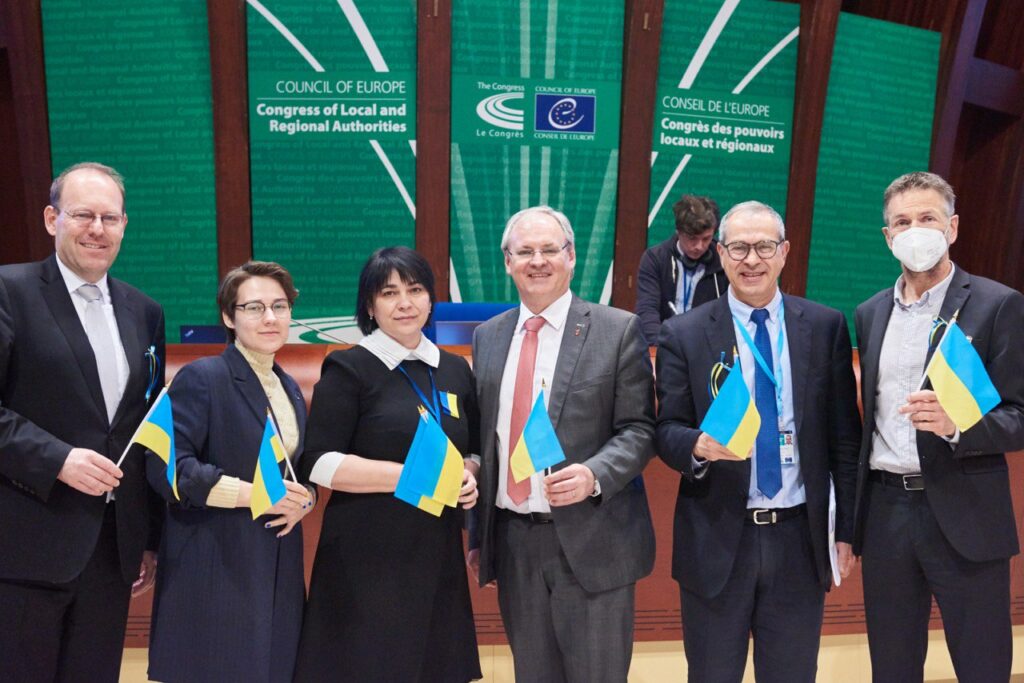
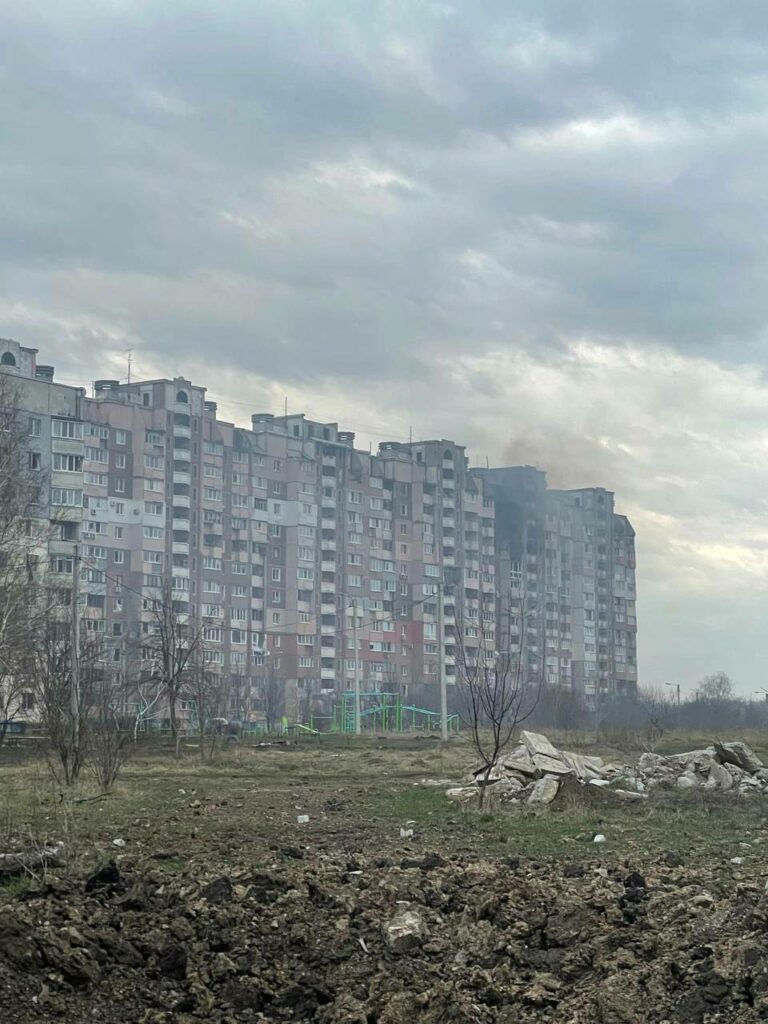
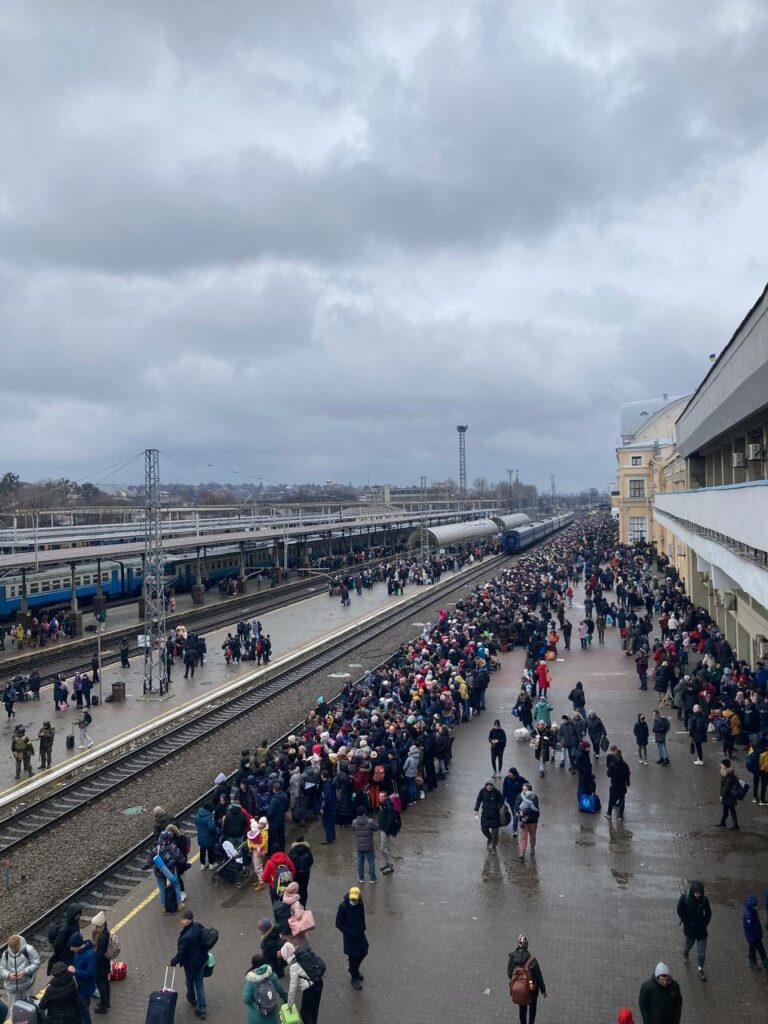
Anastasiia: till the last, we thought it was not worth going anywhere
Anastasiia from Kivsharivka in the Kharkiv region is a third-year student of international relations at the Kharkiv National Karazin University. During the months before 24 February, she was engaged in the EU-Ukraine Dialogue Initiative project as a part of the Young European Ambassadors initiative, and supported the activities of an international team of EU-based and Ukrainian YEAs. Anastasiia is also a fellow of the Sur-Place Konrad Adenauer Stiftung 2021/2022.
“I was very lucky that I was in my home village on 24 February and was planning to go to Kharkiv by the end of February. My sister and I woke up to the bombing, as the bridge of Kupyansk was destroyed 15 kilometres away from us. We perfectly understood that it was “quiet” compared to other cities of Ukraine, but we did not know what to do or whether it was worth it to go somewhere,” Anastasiia remembers.
On 27 February, Russian troops entered Kupyansk. Anastasiia and her family found themselves under occupation. The mayor is known for giving the town to the Russians, explaining his decision by his desire to save the city from destruction and the killings of civilians. There was no one to protect the town, as everyone had been sent to Kharkiv. Anastasiia remembers that, from that day on, the bombers and helicopters were constantly flying over the town, and there were explosions. Still, it was “quiet” compared to other areas. Twice, people came out to protest, but they were quickly dispersed with machine guns and tear gas. The head of the local territorial defence unit went missing during the first protest. No one even looked for him, because they saw him being taken away by Russian soldiers.
The town quickly ran out of food and medicine, and bread cost like gold. A local farmer was the only businessman who was willing to lower prices and allow payment with bank cards. Every trip to the store meant a minimum of two hours queuing in a line.
“Oh, the queues! That’s where I would begin to hate everyone: a vivid mix of political debates from pseudo-professionals and phone news from a girlfriend, a cousin, a neighbour, a daughter, or a brother about the ‘shelling at 5 pm’. It was the most unsafe when a line would include both fans of Zelenskyi and Putin (yes, they exist, which is a great pity and horror!),” Anastasiia recalls.
“Till the last, we believed that as long as it was quiet, there was no reason to go anywhere. We did everything to take mind off things: reading, painting, sewing, and walking. We had problems with connection and Internet. Then we realised that eventually the Russian troops would retreat and then everything we were afraid of could happen. We did not know how and with whom to go. Accidentally, we found out that there was a carrier to Warsaw, found their contacts and booked a seat. The exact date of the trip was not known; we had to wait for a call,” says Anastasiia.
Choosing a country was easy. Her father worked in Poland, so she and her family went there. There were three family members travelling – her mother, her sister and she, and pets, a cat and a dog. The young woman felt very lucky, because the pets stayed calm, although it was a great stress for them.
“Our bus took us through Kharkiv. We also slept in the bus. We stopped every 3-4 hours. A total of about 50 people, a few dogs and a cat were on the bus. There were four such buses. All went in a column. Between Kupyansk and Kharkiv, we passed seven checkpoints of the Russian troops. Women were not searched; only men were checked. Russian soldiers had faces with no signs of intelligence, and wore Soviet uniforms,” she says. The border was crossed quickly and without additional problems, yet the entire road from Kupyansk to Warsaw took about 38 hours.
“When leaving my hometown, I did not want to say goodbye to my beloved home and streets, because I had no idea what would happen, whether we would come back at some point, and whether our friends and acquaintances would be safe. But that morning when we left, the sun was shining brightly, like a good sign,” she says emotionally.
“When we crossed the border with Poland, I realised that we had no place to stay for the night in Warsaw on the way to our destination (my dad’s company provided us with a room for rent in one of the Polish towns). It had just slipped my mind. Therefore, we thought about the option of staying at the refugee centre, although we were not sure they would let us in, because we had quite a big dog. I also contacted some of my friends; they offered me several options for staying in Poland, all of them in other regions. We were lucky because the dad who met us was able to find an inexpensive hostel for our whole family, where Ukrainians worked and were willing to help us. We spent the night and left the next day.
The most disturbing thing for Anastasiia now is the complete lack of contact with her relatives and friends back home. Russian troops have completely blocked mobile and Internet communication in their region, so they do not even know how to help them.
Anastasiia is uncertain about the future: “I am a third-year student at the Kharkiv National University. A month after the start of the war, my studies were resumed. I can’t say that I was happy about it for many reasons. I was also looking for the possibility of a full-time transfer to a European university, but now I am interested in financial stability and professional development, which a diploma will not give me. The two months of war completely changed my priorities and goals.”
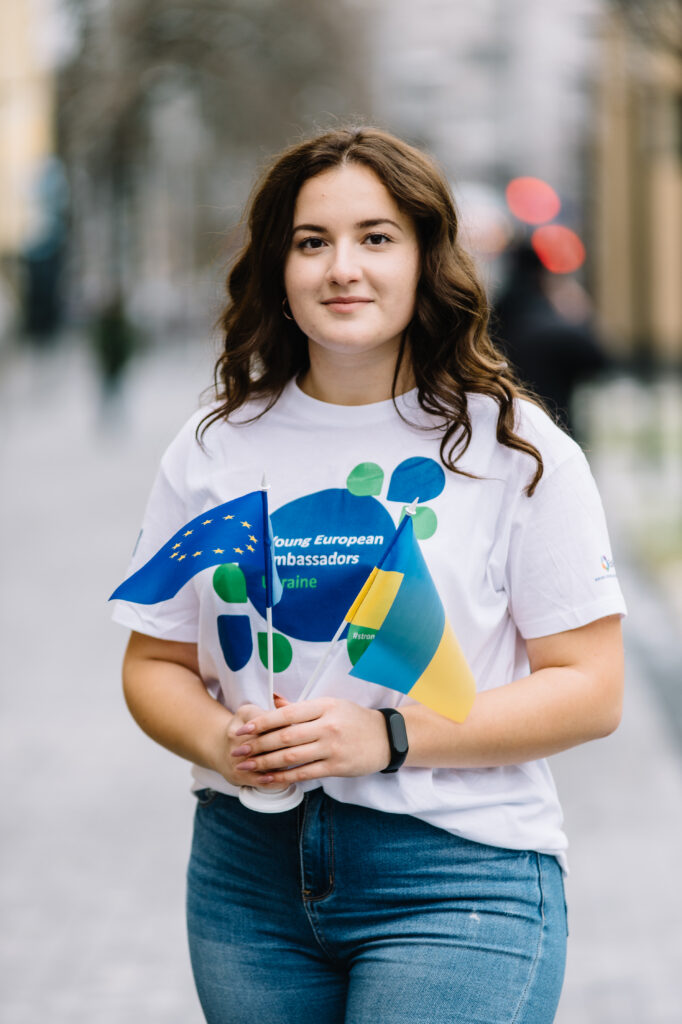
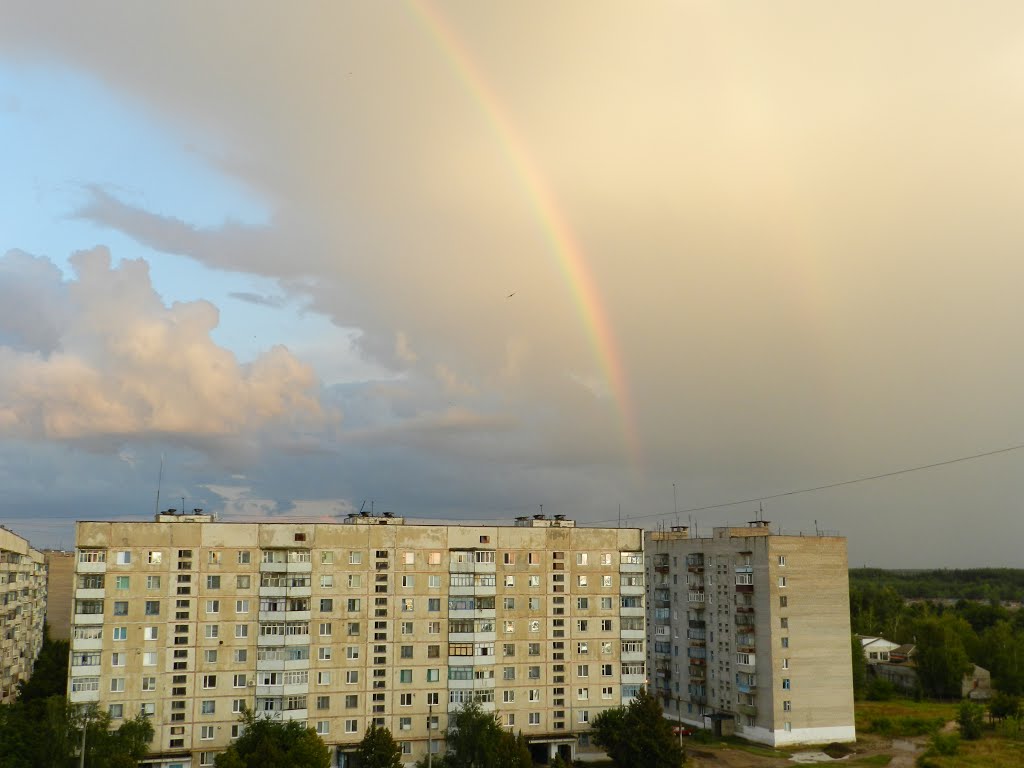
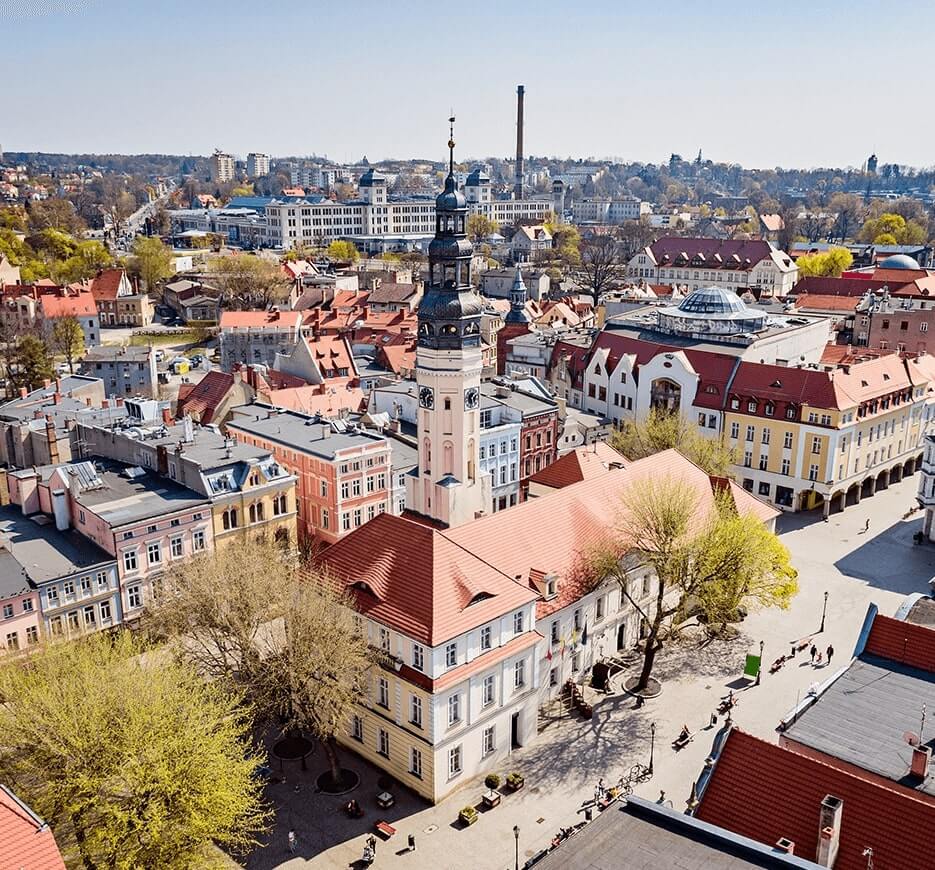
Oleksandra: After 7 hours at the border, I lost track of time
Oleksandra from Kyiv finished her bachelor’s degree in biology at the Kyiv-Mohyla Academy in 2021. Before the full-scale invasion of Russia, she worked in HIV prevention for 3 years.
“The war found me at home in Kyiv. Like many, I woke up at 5 am because of the explosions. Our house is near the Zhytomyr highway, and from the first hours of the invasion it was obvious that they were preparing for serious battles,” Oleksandra begins her conversation.
She recalls that she and her family had decided they would leave in case of war a week before it actually began. The young woman has a first-grade brother and an elderly grandmother, so they decided at once that they had to ensure their safety.
“We have relatives near Lviv who agreed to provide a temporary shelter. After 24 hours on the road, we stayed there for a week. Then we started our chaotic journey,” Oleksandra said.
Her uncle was going to serve, so he wanted the family to be safe. The uncle was the one who insisted that they go abroad. Oleksandra found cheap bus tickets to Warsaw from Lviv. Later it turned out that she had acquaintances in Bydgoszcz. They helped her find a realtor, who, in turn, helped the family find a property owner, who offered them an apartment for a few weeks free of charge. Therefore, on her way to Poland, Oleksandra already had an idea of where she was heading.
“The train station in Lviv was a complete mess. We almost lost our young brother, and our bus came completely unmarked and almost an hour late, when we had lost hope to see it. Huge crowds of people without tickets, who just wanted to go anywhere, paralysed the station. The bus took the maximum number of people on board, so only old ladies and children could sit, rotating one after another. Others were standing,” the young woman says.
They spent over 7 hours at the border before losing track of time. On the Polish side, they were welcomed, served warm borscht and given all sorts of goodies for the children. Volunteers and Red Cross workers set up camps for those who had no host in Poland. The camps provided food, sleeping facilities, humanitarian aid, and places to warm up. Sasha says she is very grateful to all the volunteers and ordinary people for their help.
“Some of the people stayed there, while we moved on to Warsaw. A volunteer met us there and drove us to the house where we stayed for the night. We slept on the floor without heating. It was not fun, but there we met Ukrainians from the east of Ukraine, who taught us some Polish,” said the woman.
The next day, the family took a train to Bydgoszcz (the tickets were free for Ukrainians). There they stayed for two months. During this time, Oleksandra’s mother managed to find a job, while Oleksandra joined the initiative to document the atrocities of Russia in Ukraine. As it turned out, both her mother and Oleksandra joined the same Brussels-based organisation. They also began to look for tickets and a place to stay in Belgium, and embarked on the next step of their journey.
“We are now living in Brussels together with another family of Ukrainian refugees, the owners of the accommodation and their charming dog. We applied for temporary protection, but there is still no response; everything is somewhat bureaucratised,” says Oleksandra.
According to the woman, her travel history is quite simple. However, moving to France made it necessary to quickly learn French, because a lot of people in their area only understand French, while English and German do not help much.
“On the one hand, they are sympathetic and try to help, but on the other hand, they cannot understand what is happening in Ukraine, because they have no practical experience of this, and their information bubble does not allow reliable information to pass through,” she says.
In addition to documenting crimes, Oleksandra is now assisting two other projects with translations and articles, as well as returning to her previous work and purchasing medications.
“In the future, I plan to enter a master’s programme. For a long time, I planned to continue developing in public health; I even had a request from the university. However, now I feel that I will be useful for the country with education in the field of international law or human rights. I am given a lot of literature and tasks for documenting crimes and I like it, because I feel I am useful for Ukraine,” she adds.
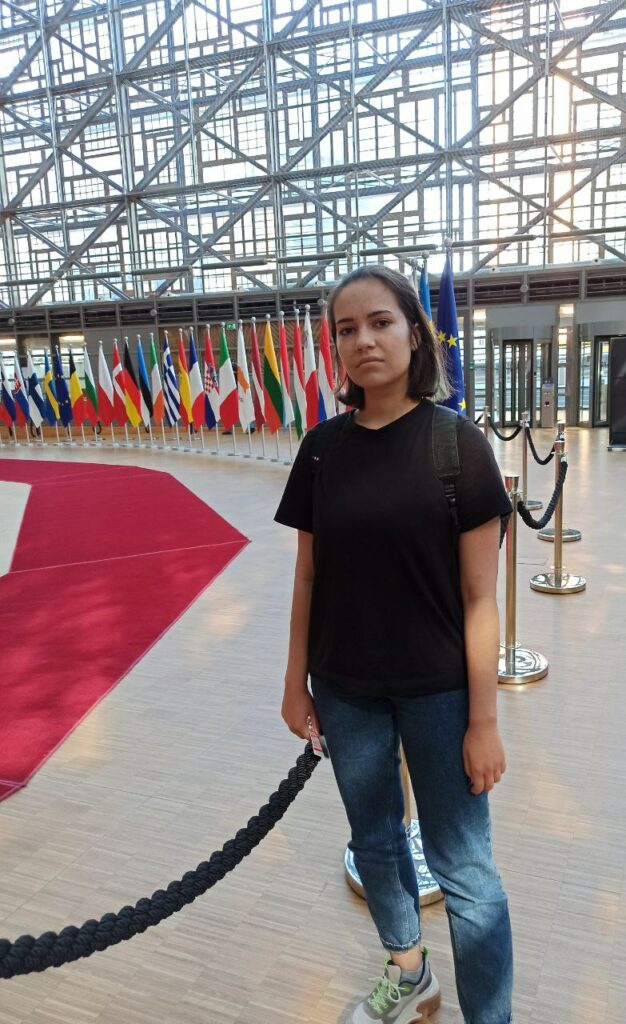
Eliza: Has the war broken me? No. But it took a long time to recover
Eliza from Kyiv is a law master who graduated from the International Law Faculty of the Yaroslav the Wise National University of Law. Before the war, she served as an intern at the Supreme Council of Ukraine at the Committee for Ukraine’s EU Integration. She was accepted for an internship as an assistant to the Honorary Consul of France in Kharkiv. Eliza would frequently initiate public lectures and help organise charitable events.
“The war caught me in Kyiv. At 5 am, my mother, who lived in Kharkiv, called me and said, ‘Liza, the war has begun. They are bombing us.’ I was not so much afraid for myself as for her, because the tickets to leave Kharkiv were gone at once. Anyway, my mum was afraid of going anywhere,” the woman recalled.
Eliza decided to evacuate from Kyiv to her cousin, who lived in Khmelnytsky. At first, she had to walk 12 km from home to the station, because the subway line did not work. Eliza took with her only her documents and tracksuit, because she thought she was going only for a few days.
“I didn’t take any clothes or food. I thought, they would keep out of Kyiv. I had one tray of pancakes and two tangerines. There were students next to me on the train, and I gave them tangerines, because I realised that they, like me, had eaten nothing in the morning and were both nervous and hungry. I left behind a full fridge of food and my entire closet. On my way, I thought that was only for a week or two, and the main thing was not to die from a missile or shelling,” the woman recalls.
After evacuating from Kyiv, Eliza stayed in Khmelnytsky for a few days. Her cousin’s small children were very afraid of the sirens. Eliza tells us that once her young niece became ill: her acetone level increased due to stress and nervous state, because they often sat in the basement due to air defence alert at night. The child lay for an hour unconscious with her eyes open. At that moment, Eliza managed to keep her cool, because she felt responsible for the children. In the evening, though, she finally gave vent to her emotions and cried. Another shocking incident was related to her mother. She stayed in Kharkiv for many days. The city was not occupied but under heavy attack. During the first days of the war, her mother’s house lost power, but there was still water in the taps. Later, her street had to live with no electricity, water, gas, heating, or any way of cooking. Eliza’s mother was afraid she would be stuck in Kharkiv without food and water.
“When you hear that all your mum can eat are nuts, you want to shout for help to the whole world. This was what I did. My friends would share with their friends that my mother needed at least some bread and drinking water. Even Miami bloggers shared my stories. People from different parts of the world sought volunteers for my mother. Thank you to them. Later I realised that I couldn’t carry on like this. It was impossible to go on. This was the reason for going abroad,” she says.
At first, Eliza had to fight to get onto the train, with hundreds of people trying to get through. Then she had to spend the night at the train station in Lviv, wearing only one coat, when it was freezing in winter. In addition to that, a man made passes at her and worsened the stress. Thanks to the volunteers who were there all the time, everything ended well. In the morning, a friend drove Eliza to the Polish border crossing, where another friend had already been waiting for her on the opposite side. He introduced Eliza to a woman from his work, who hosted Eliza for a night.
“I didn’t have any money, because I was ‘smart’ enough to withdraw all the cash in hryvnia back in Ukraine. But someone gave me 1,000 zlotys. It helped me to survive. I had to spend every new night in a new city with acquaintances. There was no plan or final destination,” Eliza recalls.
Then, according to Eliza, a miracle happened. Another friend wrote to her and proposed to stay with him in Berlin. This is how she ended up in Germany. Eliza has been living with his family for a month now. They helped her with everything, including documents, a bank account, vaccinations, and so on. Eliza feels like a member of their family, for which she is very grateful to her hosts.
Eliza now plans to get her master’s degree. After passing all her exams in Ukraine, she still has no diploma in hand. She says that it depends on the university, where she will live and work in the future. Eliza is now back in touch with the MP for whom she worked before the war; she helps her with communications, analysis of materials, and translations. She also attends pro-Ukrainian demonstrations and works on a proposal to support victims of sexual abuse by the occupiers.
Reflecting on the time that has passed since the Russian invasion began, Eliza notes that she has begun to value her family and loved ones even more:
“When escaping from Kharkiv, my mum took only one bag. She didn’t sleep all night before that, and after so many days in the basement it is extremely hard to collect thoughts and pack thoughtfully. What my mum did was thinking about me: in her only bag, she put some summer clothes for me, my face cream, my towel, my favourite spices, and my vyshyvanka. Almost nothing for herself. I don’t know if I can learn to love like my mummy does.”
Eliza says she easily lets go of negative thoughts about other people’s misdeeds and cannot remember anything bad for a long time. That is why she cannot think of anything negative about her journey. The only thing she cannot forgive herself for is her hopeless state, a pause in her achievements, and the never-ending feeling that she could do more.
“Has the war broken me? No. But it took me a long time to recover. I believe in the Armed Forces of Ukraine, the President of Ukraine and the Ukrainian people. Particular thanks to the Young European Ambassadors group, because you mitigate my fears and loneliness”, Eliza added.
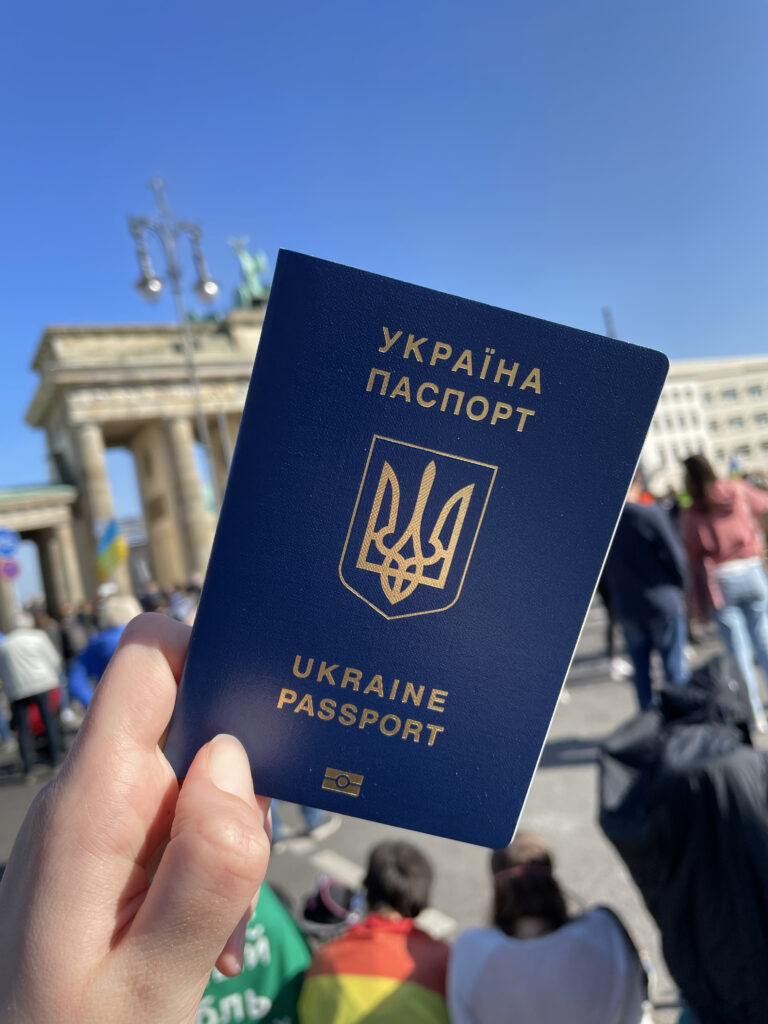
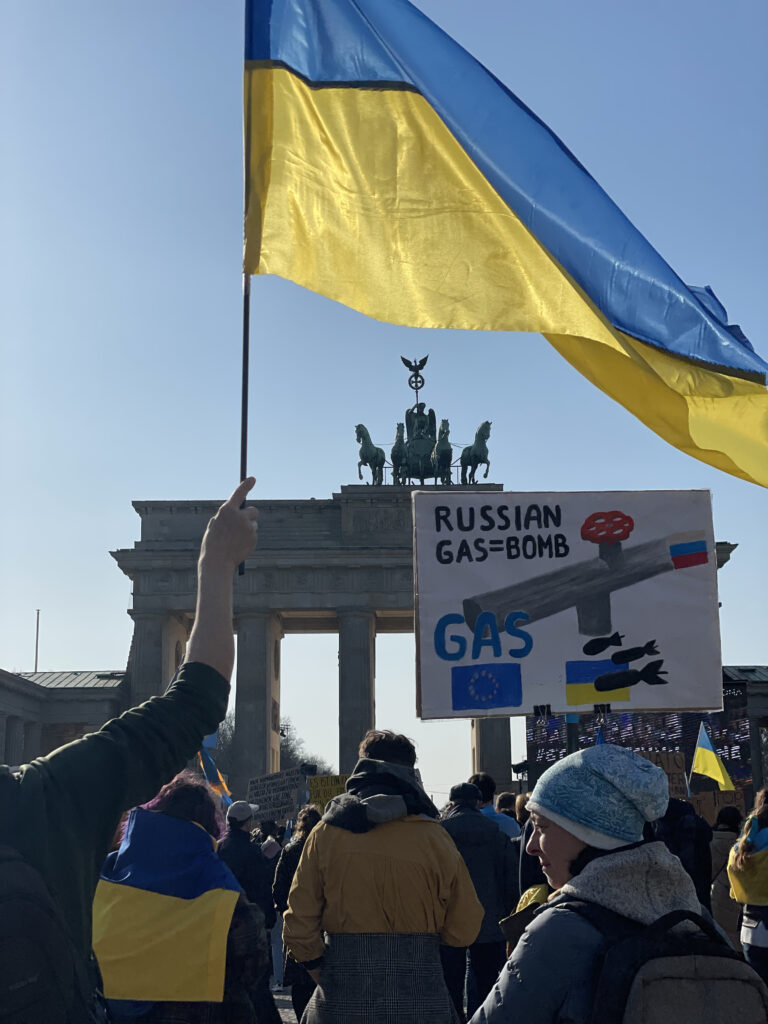
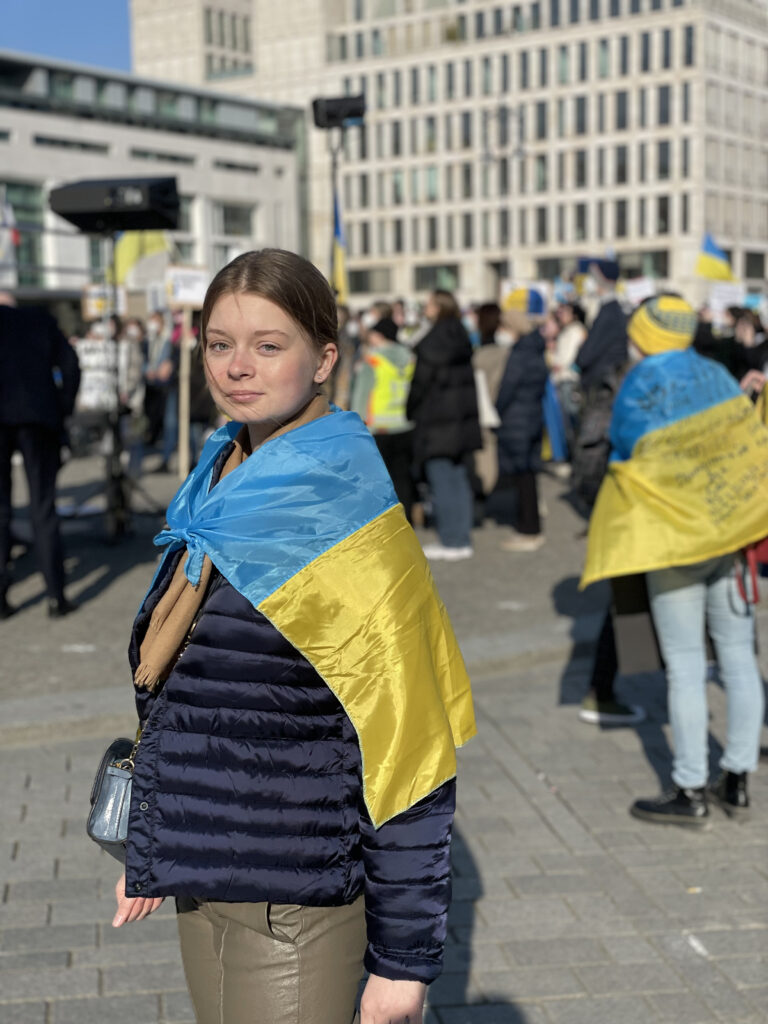
LATEST

How you can help the planet every day

Building Europe: Poland’s experience of joining the European Union and lessons for Ukraine

World Health Day 2024: My Health, My Right

EUREKA MEETS EUROPE – opportunities to develop and study. My experience

Can you wear pink in the workplace?
More campaign pages:
Interested in the latest news and opportunities?
This website is managed by the EU-funded Regional Communication Programme for the Eastern Neighbourhood ('EU NEIGHBOURS east’), which complements and supports the communication of the Delegations of the European Union in the Eastern partner countries, and works under the guidance of the European Commission’s Directorate-General for Neighbourhood Policy and Enlargement Negotiations, and the European External Action Service. EU NEIGHBOURS east is implemented by a GOPA PACE-led consortium. It is part of the larger Neighbourhood Communication Programme (2020-2024) for the EU's Eastern and Southern Neighbourhood, which also includes 'EU NEIGHBOURS south’ project that runs the EU Neighbours portal.

The information on this site is subject to a Disclaimer and Protection of personal data. © European Union,